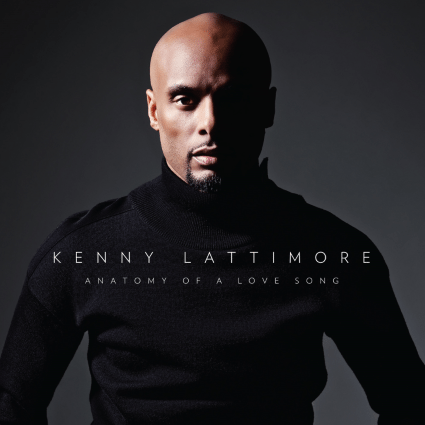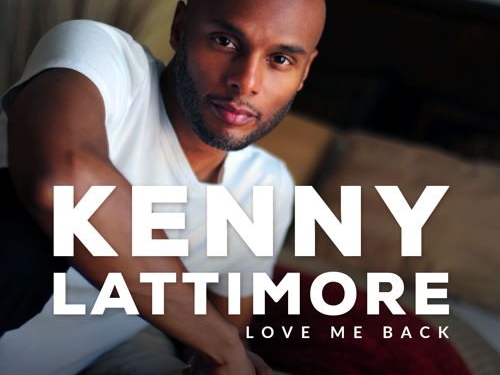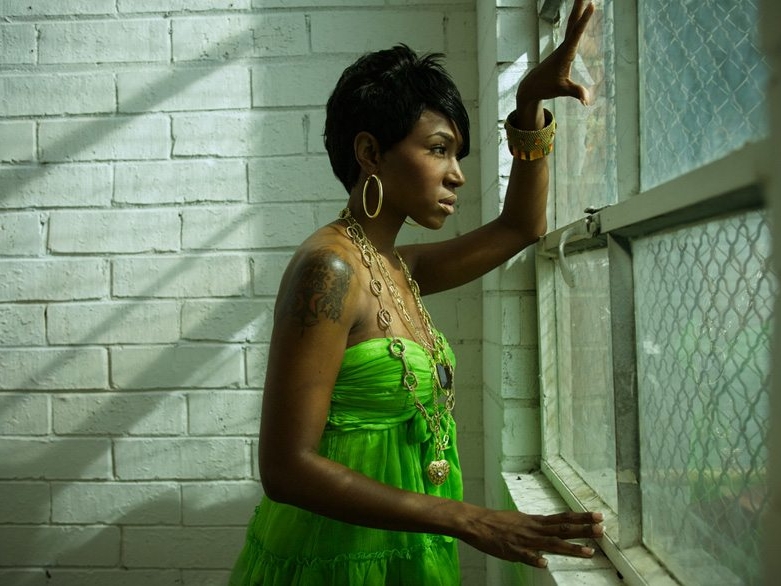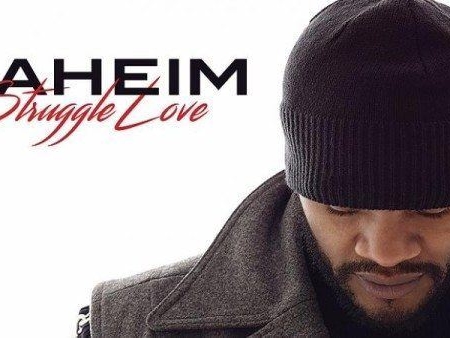The smooth and soulful Kenny Lattimore spoke with Grown Folks Music at length about his new album, Anatomy of A Love Song, fighting to keep his music and brand alive amidst the new climate of the industry, who he is as an artist today, and the blessing of his signature song “For You”. Read and enjoy.
GFM: You’ve got a new project and the title of the project is intriguing to me. Why did you call it Anatomy Of A Love Song?
KL: I thought about the anatomy… the inner workings of the body… the heart. When I think of the heart of a love song I think of it being the lyric. Then, all of the other components that allow us to physically experience in our anatomy what I think a love song would be is the veins… the muscle… everything (else)… is the music and all of its components. Whether it’s the drumbeat, to the keyboards and the strings and every voice and everything that makes it sound the way it does.
When I thought about the collection of songs, I kept thinking I knew love songs had to be in the title, but I wanted it to be about the components and the makings of that. I was talking to a buddy of mine and he said, ‘Have you ever thought of the word anatomy?’ We were just throwing things out there. I said, ‘Anatomy would be perfect.’ I think that describes what I want the listener to think about. These are the components: great lyrics, great music. Those are the main components of a song. So, a love song has to have those stories in it that make you think about the highs and lows too– not just one dimension. I wanted the album to be the highs and lows, and then the music I wanted to remind me of the things that I loved like the sounds of Philly International and the sounds or Marvin Gaye or Donny Hathaway. Even on “Love Me Back” there’s an old-school, analog, kind of drum sound that we’re using that’s a feel-good kind of drum sound to me that takes me into my past. Then, using the Bobby Womack “If You Think You’re Lonely Now” (reference)… all those little nuances are parts of that that I wanted to convey to every listeners.
GFM: Speaking of the stories and the different sides of love story telling that you present on this album, it had me wondering when listening to the album who writes for you. Like I said, you tell different stories and (present) different sides of love with the tracks on this album, but there’s something about your delivery that it really sounds like you’re singing from a personal place– from the heart as well.
My question is who writes for you? If you weren’t the songwriter, when you sat down to start this project were there some buzz words, or some themes, or some things that you really let the songwriters know that you wanted to convey or were songs sent to you?
KL: That’s a good question. You know it’s very interesting. One of the ways that I’ve tried to stay relevant regarding the industry is to surround myself with people who already know my brand and if they’re kinda familiar then they’re young. So, I had an array of mature men and women who knew my brand who were like, ‘okay’, and then I also had young, 25 year olds– when I think of “Love Me Back” even– but they had grown up on my music. They were familiar with it, so they kept me in an authentic place. I can get a song from anywhere, but if I relate to it, then I think I can tell the story. If it’s real to me I think I can tell the story well. I invite different people to come in, because sometimes having a variety of people working and writing pushes you into areas where you thought maybe you’d never go. It also challenges you to be better at whatever you thought you were doing, because if you give them the space to be honest in with you I think that you get a better result out of it.
The longer story is that I had fallen out of love with the music industry and recording in particular.
GFM: Talk about that. Why is that?
KL: I think it’s because I lived through the golden age of the recording industry. I lived through the era where people wanted you to be an individual and wanted you to be amazing. Then, somewhere in the new millennium people wanted me to sound like somebody else. (They) wanted me to be like somebody else and imitate and I couldn’t quite do that. So then I started feeling like, ‘Well, there’s not really any space for me here anymore.’ I can sing in church and be very satisfied. I can go do a gospel album or whatever. But, I’m not one of those artist that’s gonna say, ‘Oh I’m leaving R&B for gospel.’ That wasn’t it. It was really just like, ‘Hmm let me do something that I know is real and that is authentic in me.’ Through the process I raised my son and sang in the church. Occasionally I’d get out. You might see me on an awards show or you might see me guest appearing at something and then I’d kinda go on back home.
The whole process was kinda funky for a minute. Carvin Haggins, one of my buddies that produced three songs on the album said to me, ‘ You know what Kenny, we need your voice in the industry.’ I was like, ‘Oh, okay Carvin, that’s nice. You need my voice in the industry. That’s flattering and everything, but what am I supposed to sound like in 2015? What does Kenny Lattimore sound like in 2015? If I’m sitting up here struggling now (and) trying to figure out whether my identity means anything to this industry, what am I supposed to sound like in 2015?’ He said, ‘Come to my house. Just chill out and I want you to just stay and get in a space. I’m gonna play some songs for you and let’s just try some things.’ The first song that we recorded was a song called “Find A Way” that’s on the album. Then we recorded another song called “What Must I Do”. Then we did another one called “You Have My Heart”, and it started sounding familiar like, ‘This is starting to sound like a project.’
I recorded those songs back in 2010 or ’11… somewhere around there. I sat on them for a minute because then I was like, ‘Now what? Do I have enough material? This has gotta be some really good stuff, because I cannot come back out after falling out of love with this industry and just put anything out.’ So, I went out and I did focus groups. I let people listen to the demos. I said, ‘Do you think this is worthy of me singing? Do you think this is something you would buy?’ We, as artists, can become very self indulgent at times and make albums for ourselves. But, I knew that if I was gonna come back out and if God was gonna give me the platform to actually connect to people again from a recording, I wanted to make sure that it was going to connect and that it was a conversation and not just a personal statement.
GFM: You said that you recorded these (songs) some four or five years ago… some of the songs on the album. Am I correct that between that time and now you’ve had an album? Am I wrong about that, or just a few singles?
KL: I put out two singles. I never put an album out. What happened was we were gathering the material and I had a record distribution deal through Capitol and EMI. I was going to put out an album, called Back To Cool. The “Find The Way” single initially came out, which was in 2012, (and) because I’ve been in the industry a long time I was watching and I was going, ‘Umph. You guys aren’t doing exactly what I thought you needed to do to take the song and deliver it to the people.’ I could tell it wasn’t gonna happen. And I said, ‘Well, we could go back and we could try this thing again.’ I didn’t know what we were going to do. Then, Universal came in and they bought EMI in the whole process of me examining whether I even wanted to stay with the company. It just became a whole thing and I just started feeling like, ‘Nope, it’s not time.’ It wasn’t time and I stopped the album from coming out.
I took all of those songs (and) they are on Anatomy Of A Love Song… plus more songs. Because the quality of what I had just recorded… I had done a song with Lalah Hathaway. I’d done stuff with Kelly Price and Shanice and had these great producers. I was like, ‘There is no way I’m going to put this album out and let you all just…’ Not that it’s a person that’s responsible for that.
GFM: Right, but watch it die… I know what you mean… watch it die. Watch it (be) shelved and die. I know what you’re talking about.
KL: Exactly, I was like, ‘Nope, I’m not gonna allow that to happen.’ I’d rather it die because people didn’t like it once it came out. (laughs)
GFM: But they have to hear it first, and it wasn’t going to make it.
KL: Exactly, so I just took it all back and did another deal. I ended up over at eOne, which was also very difficult for me, because it was the first time that I was truly with what I would call an independent company. Even though I was at Capitol/EMI, I think that in the back of my head I was still feeling like, ‘But it’s CAPITOL. It’s a major label and they’re gonna have their reps and their reps are gonna do this for me and people are gonna do that for me.’ And when I got to eOne I was like, ‘Okay look, I understand I’ve got control of my brand. I understand as a businessman what it is and what it’s not.’ I really feel like I understand where my fans are. When I say ‘what it’s not’, I mean the industry’s changed.
People are quick to tell you what you’re not gonna sell or that R&B doesn’t sell as much as it used to. Nothing really sells as much as it used to. To some people it’s a negative attitude towards the industry. But, then there are glimmers of hope like Kem being gold. Then I go, ‘Wait a minute.’ (laughs) Kem is getting some airplay and all, but he’s not getting the airplay like some of these other mainstream stars who are (also) not selling as well. But there’s a connection that’s happening with this man and his audience that no one can put a price on that. He nurtured that audience for years. Even when he didn’t want to be on the road performing he stayed there and he was consistent. He connected with those people and then they’re going for the ride and the rest is history. That’s all I want. I just want a shot to connect to my audience, because I know they’re there, but they don’t always get serviced with me. That’s what I saw happening with “Find A Way”. I asked (people) ‘Do y’all know I have a new single out? (They said) No. No. No.’ (I saw that) They (Capitol Records) haven’t found my audience. They don’t know where they are.
GFM: Kudos to you for even… I don’t know what kind of lawyer you had to even be able to get your album back… to get your songs back. That’s a major victory in (and of) itself… to get it back then bring it out.
You mentioned a few key things in your conversation and one of them is knowing your brand and what’s best for your brand. You kept mentioning your brand. There’s been many years now between your first album and Anatomy Of A Love Song. My question is kinda related to your brand. Who is Kenny Lattimore as an artist? Who are you?
KL: Kenny Lattimore is an inspirational artist. He really thrives on this thing called love and relationships. But, through the years the brand has really developed a greater understanding and knowledge of what true relationship is and what authenticity really is. The brand has gone through transitions where it once was the single man searching for idealistic love– to the married man who had found it– to the divorced man who had to figure out whether he actually believed that it still existed. Because I had spent so many years building on this thing called love, it had to be greater than even my own personal experience. It really had to be a spiritual thing for me where I understood that love was sacrifice. It was forgiveness. It was a lot more characteristics that were deeper than what we a lot of times associate with love. Love in this day in age has been reduced to really sex. The word is overly used so much.
I also understand that my brand is pretty clean cut. Its sophisticated. It’s classy. I think a lot of these things I’m accepting because this is how I’ve been identified in the marketplace. So, I think I’ve accepted my perception because it hasn’t been negative. If somebody came up and said your perception is that you are… something and it wasn’t me I’d have to say, ‘Okay, okay wait a minute. I need to change that about my brand.’ I love when people refer to the classy and consistent and all of that kind of stuff. I appreciate those words because those are things that I do wanna be associated with.
I think of my mother. I think of my mother raising me. (She is a) Howard University grad (and) psychologist. She used to take me out and volunteer for the NAACP and The 100 Black Women. She wanted me to always understand who I was as a man… who my people were as being an African American man. My mother… who wanted me to be traveled, who rooted for the underdog (and) who was just inspired by people who dreamed and had vision. All of those components and all of those things that are part me, I’m able to give them to my son.
So when I think about my brand again, I think of an integral man. Not a perfect man, but a man that has integrity and character so that whatever I do, when I leave this Earth I wanna make sure that it has inspired somebody towards greatness and wholeness.
GFM: Very good. Back to the album… I hear some female voices on a few of the tracks. Who have you collaborated with for the album?
KL: We have a duet with Lalah Hathaway that I absolutely love because the sound and the production of that particular song is reminiscent of her dad. She was just the perfect person to bring that song to life. It’s called “Nothing Like You”. There’s another song called “Back To Cool”, which is from the original album that Kelly Price is singing on. She’s a phenomenal singer. Towards the end of the song she has an acappella run that’s just killer. Shanice, who is my good friend– when I say that I mean in Hollywood, in this industry, there are few true people that I would say, ‘Oh yeah this is really my friend,’ but Flex and Shanice are great friends. She’s appeared on some projects that I’ve had in the past. I was very happy to have her singing on a song called “Still Good”. Actually, there’s a gospel rapper on “Still Good” named Da Truth. I believe it’s his first mainstream record ever. The reason why he was the perfect candidate for that was because he went through something in his personal life. So, authentically he lived out the song so he had something to say. He very freely gave of himself on the record.
GFM: How much money would you have if you had a dollar for every time someone mentions “For You” and their wedding? Does it still make you feel good to hear the stories come through about that song?
KL. It’s amazing. Like just last week it was great… I was up at Essence Magazine and I ended up singing it for someone… priceless. There’s no way that I could have ever imagined that the song would’ve touched people the way it did and that they would use it in their weddings like they use it. It’s quite an honor, because I always tell people, ‘That means you’re never gonna forget me.’ They go, “No, we don’t.’ I’m just joking, but they’re like, ‘Noooo, we’re never gonna forget you.’ Whether the relationship lasted or not. I’m flattered… tremendously flattered. The last celebrity wedding that I did was for Carmelo Anthony and Lala. The reason why I’m bringing that up is (because) she was in high school (when the song came out). She said, ‘I heard that song and I said, this is going to be my wedding song.’ I went and sang it for her as she came down the aisle. That was her fantasy and it came true. It’s interesting how a really great song can live on. A great love song can live on and touch generations because love never goes out of style. It just comes back. If you’re ten and then and ten or fifteen years later you’re falling in love and you’re getting married (then) you’re listening to those songs again and they become significant all over again.
GFM: What is your definition of Grown Folks Music?
KL: Music that has substance. Music that stands the test of time. Grown Folks Music is sexy. It’s fun. When I think of grown, I think of people who have lived life and lived well. The music has to reflect that. Whether it’s the pain or whether it’s the celebration of life– whatever that is– I think that it has to authentically have truth in it and experience. When I think of “For You”, and when I think of the words of that song, they’re so in depth and so clear that you have to experience all those things to really identify. Grown Folks Music is like that to me.
Kenny Lattimore’s new album, Anatomy Of A Love Song is out RIGHT NOW. Get it at iTunes.
For concert dates, click here
Get Social with Kenny Lattimore:
On Twitter
On Facebook





